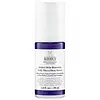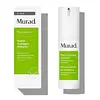What's inside
What's inside
 Key Ingredients
Key Ingredients

 Benefits
Benefits

 Concerns
Concerns

 Ingredients Side-by-side
Ingredients Side-by-side

Water
Skin ConditioningGlycerin
HumectantButylene Glycol
HumectantPentylene Glycol
Skin ConditioningNiacinamide
SmoothingCetyl Alcohol
EmollientIsohexadecane
EmollientIsononyl Isononanoate
EmollientDiisopropyl Sebacate
Emollient2-Oleamido-1,3-Octadecanediol
Skin Conditioning4-T-Butylcyclohexanol
MaskingAcetyl Dipeptide-1 Cetyl Ester
Skin ConditioningAdenosine
Skin ConditioningCeramide NP
Skin ConditioningHydroxypalmitoyl Sphinganine
Skin ConditioningLauroyl Lysine
Skin ConditioningOctyldodecanol
EmollientPentaerythrityl Tetra-Di-T-Butyl Hydroxyhydrocinnamate
AntioxidantSodium Chloride
MaskingSodium Hyaluronate
HumectantSodium Hydroxide
BufferingTrisodium Ethylenediamine Disuccinate
Retinol
Skin ConditioningTocopherol
AntioxidantDicaprylyl Ether
EmollientAmmonium Polyacryloyldimethyl Taurate
Emulsion StabilisingBehenyl Alcohol
EmollientCaprylyl Glycol
EmollientCarbomer
Emulsion StabilisingCetearyl Alcohol
EmollientCetearyl Glucoside
EmulsifyingGlycine Soja Oil
EmollientHelianthus Annuus Seed Oil
EmollientHydroxyethylcellulose
Emulsion StabilisingLecithin
EmollientPhenethyl Alcohol
MaskingPoloxamer 188
EmulsifyingPolycaprolactone
StabilisingSorbitan Laurate
EmulsifyingSteareth-100
Gel FormingCI 40800
Cosmetic ColorantChlorphenesin
AntimicrobialPhenoxyethanol
PreservativeWater, Glycerin, Butylene Glycol, Pentylene Glycol, Niacinamide, Cetyl Alcohol, Isohexadecane, Isononyl Isononanoate, Diisopropyl Sebacate, 2-Oleamido-1,3-Octadecanediol, 4-T-Butylcyclohexanol, Acetyl Dipeptide-1 Cetyl Ester, Adenosine, Ceramide NP, Hydroxypalmitoyl Sphinganine, Lauroyl Lysine, Octyldodecanol, Pentaerythrityl Tetra-Di-T-Butyl Hydroxyhydrocinnamate, Sodium Chloride, Sodium Hyaluronate, Sodium Hydroxide, Trisodium Ethylenediamine Disuccinate, Retinol, Tocopherol, Dicaprylyl Ether, Ammonium Polyacryloyldimethyl Taurate, Behenyl Alcohol, Caprylyl Glycol, Carbomer, Cetearyl Alcohol, Cetearyl Glucoside, Glycine Soja Oil, Helianthus Annuus Seed Oil, Hydroxyethylcellulose, Lecithin, Phenethyl Alcohol, Poloxamer 188, Polycaprolactone, Sorbitan Laurate, Steareth-100, CI 40800, Chlorphenesin, Phenoxyethanol
Water
Skin ConditioningIsodecyl Neopentanoate
EmollientPolymethylsilsesquioxane
Glycerin
HumectantPentylene Glycol
Skin ConditioningNeopentyl Glycol Diethylhexanoate
EmollientCetyl Ethylhexanoate
EmollientStearic Acid
CleansingCetearyl Olivate
Dimethicone/Bis-Isobutyl PPG-20 Crosspolymer
EmollientSorbitan Olivate
EmulsifyingButylene Glycol
HumectantHoney
HumectantUrea
BufferingYeast Amino Acids
HumectantTrehalose
HumectantInositol
HumectantTaurine
BufferingBetaine
HumectantCaprylic/Capric Triglyceride
MaskingAlaria Esculenta Extract
Skin ProtectingPalmitoyl Tripeptide-5
Skin ConditioningCodium Tomentosum Extract
Skin ProtectingHydrogenated Olive Oil
Skin ConditioningOlea Europaea Fruit Oil
MaskingOlea Europaea Oil Unsaponifiables
Skin ConditioningSodium Hyaluronate
HumectantCollagen Amino Acids
MoisturisingCitrus Medica Vulgaris Fruit Extract
AntioxidantPyrus Malus Fruit Extract
Skin ConditioningLens Esculenta Fruit Extract
Skin ConditioningTocopheryl Acetate
AntioxidantSodium PCA
HumectantSodium Lactate
BufferingZinc Gluconate
Skin ConditioningAscorbic Acid
AntioxidantChitosan
Propyl Gallate
AntioxidantPolysorbate 20
EmulsifyingAcrylates/C10-30 Alkyl Acrylate Crosspolymer
Emulsion StabilisingAminomethyl Propanol
BufferingTrisodium Ethylenediamine Disuccinate
Disodium EDTA
Phenoxyethanol
PreservativeCaprylyl Glycol
EmollientChlorphenesin
AntimicrobialLinalool
PerfumingAnthemis Nobilis Flower Extract
MaskingAnthemis Nobilis Flower Oil
MaskingLavandula Angustifolia Oil
MaskingWater, Isodecyl Neopentanoate, Polymethylsilsesquioxane, Glycerin, Pentylene Glycol, Neopentyl Glycol Diethylhexanoate, Cetyl Ethylhexanoate, Stearic Acid, Cetearyl Olivate, Dimethicone/Bis-Isobutyl PPG-20 Crosspolymer, Sorbitan Olivate, Butylene Glycol, Honey, Urea, Yeast Amino Acids, Trehalose, Inositol, Taurine, Betaine, Caprylic/Capric Triglyceride, Alaria Esculenta Extract, Palmitoyl Tripeptide-5, Codium Tomentosum Extract, Hydrogenated Olive Oil, Olea Europaea Fruit Oil, Olea Europaea Oil Unsaponifiables, Sodium Hyaluronate, Collagen Amino Acids, Citrus Medica Vulgaris Fruit Extract, Pyrus Malus Fruit Extract, Lens Esculenta Fruit Extract, Tocopheryl Acetate, Sodium PCA, Sodium Lactate, Zinc Gluconate, Ascorbic Acid, Chitosan, Propyl Gallate, Polysorbate 20, Acrylates/C10-30 Alkyl Acrylate Crosspolymer, Aminomethyl Propanol, Trisodium Ethylenediamine Disuccinate, Disodium EDTA, Phenoxyethanol, Caprylyl Glycol, Chlorphenesin, Linalool, Anthemis Nobilis Flower Extract, Anthemis Nobilis Flower Oil, Lavandula Angustifolia Oil
 Reviews
Reviews

Ingredients Explained
These ingredients are found in both products.
Ingredients higher up in an ingredient list are typically present in a larger amount.
Butylene Glycol (or BG) is used within cosmetic products for a few different reasons:
Overall, Butylene Glycol is a safe and well-rounded ingredient that works well with other ingredients.
Though this ingredient works well with most skin types, some people with sensitive skin may experience a reaction such as allergic rashes, closed comedones, or itchiness.
Learn more about Butylene GlycolCaprylyl Glycol is a humectant and emollient, meaning it attracts and preserves moisture.
It is a common ingredient in many products, especially those designed to hydrate skin. The primary benefits are retaining moisture, skin softening, and promoting a healthy skin barrier.
Though Caprylyl Glycol is an alcohol derived from fatty acids, it is not the kind that can dry out skin.
This ingredient is also used as a preservative to extend the life of products. It has slight antimicrobial properties.
Learn more about Caprylyl GlycolChlorphenesin is a synthetic preservative. It helps protect a product against bacteria in order to extend shelf life. In most cases, Chlorphenesin is paired with other preservatives such as phenoxyethanol and caprylyl glycol.
Chlorphenesin is a biocide. This means it is able to help fight the microorganisms on our skin. It is also able to fight odor-releasing bacteria.
Chlorphenesin is soluble in both water and glycerin.
Studies show Chlorphenesin is easily absorbed by our skin. You should speak with a skincare professional if you have concerns about using Chlorphenesin.
Learn more about ChlorphenesinGlycerin is already naturally found in your skin. It helps moisturize and protect your skin.
A study from 2016 found glycerin to be more effective as a humectant than AHAs and hyaluronic acid.
As a humectant, it helps the skin stay hydrated by pulling moisture to your skin. The low molecular weight of glycerin allows it to pull moisture into the deeper layers of your skin.
Hydrated skin improves your skin barrier; Your skin barrier helps protect against irritants and bacteria.
Glycerin has also been found to have antimicrobial and antiviral properties. Due to these properties, glycerin is often used in wound and burn treatments.
In cosmetics, glycerin is usually derived from plants such as soybean or palm. However, it can also be sourced from animals, such as tallow or animal fat.
This ingredient is organic, colorless, odorless, and non-toxic.
Glycerin is the name for this ingredient in American English. British English uses Glycerol/Glycerine.
Learn more about GlycerinPentylene glycol is typically used within a product to thicken it. It also adds a smooth, soft, and moisturizing feel to the product. It is naturally found in plants such as sugar beets.
The hydrophilic trait of Pentylene Glycol makes it a humectant. As a humectant, Pentylene Glycol helps draw moisture from the air to your skin. This can help keep your skin hydrated.
This property also makes Pentylene Glycol a great texture enhancer. It can also help thicken or stabilize a product.
Pentylene Glycol also acts as a mild preservative and helps to keep a product microbe-free.
Some people may experience mild eye and skin irritation from Pentylene Glycol. We always recommend speaking with a professional about using this ingredient in your routine.
Pentylene Glycol has a low molecular weight and is part of the 1,2-glycol family.
Learn more about Pentylene GlycolPhenoxyethanol is a preservative that has germicide, antimicrobial, and aromatic properties. Studies show that phenoxyethanol can prevent microbial growth. By itself, it has a scent that is similar to that of a rose.
It's often used in formulations along with Caprylyl Glycol to preserve the shelf life of products.
Sodium Hyaluronate is hyaluronic acid's salt form. It is commonly derived from the sodium salt of hyaluronic acid.
Like hyaluronic acid, it is great at holding water and acts as a humectant. This makes it a great skin hydrating ingredient.
Sodium Hyaluronate is naturally occurring in our bodies and is mostly found in eye fluid and joints.
These are some other common types of Hyaluronic Acid:
Learn more about Sodium HyaluronateTrisodium Ethylenediamine Disuccinate is used to help stabilize a product.
It is a chelating agent, meaning it helps prevent metal ions from binding to other ingredients. This prevents unwanted reactions in products. Metal ions can come into a product via the water ingredient. They are found in trace amounts and are not known to be harmful.
Water. It's the most common cosmetic ingredient of all. You'll usually see it at the top of ingredient lists, meaning that it makes up the largest part of the product.
So why is it so popular? Water most often acts as a solvent - this means that it helps dissolve other ingredients into the formulation.
You'll also recognize water as that liquid we all need to stay alive. If you see this, drink a glass of water. Stay hydrated!
Learn more about Water